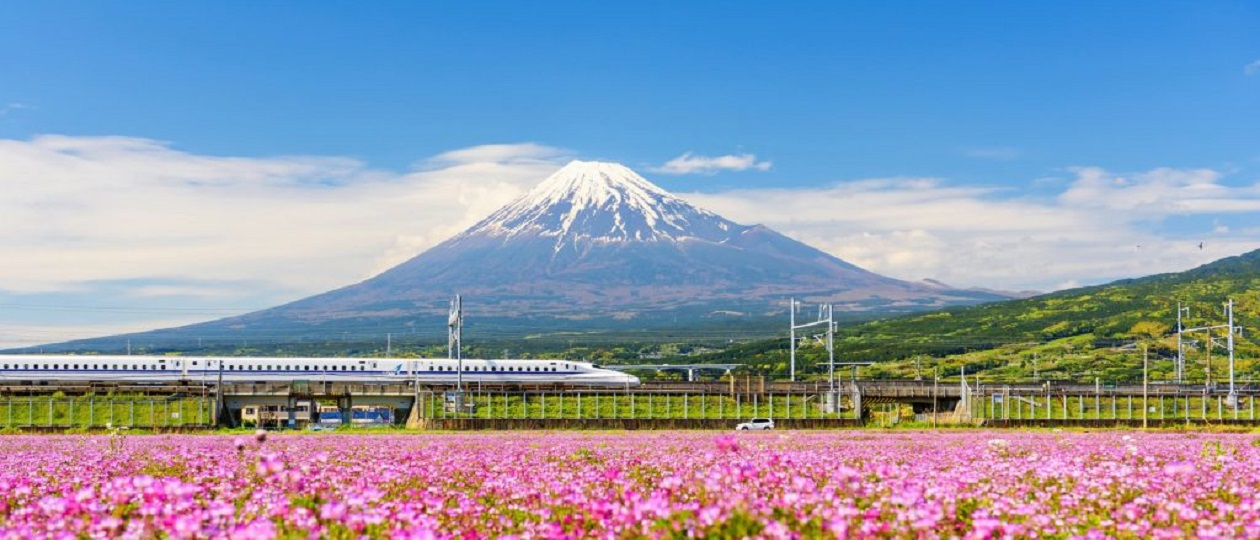
Japan is a miraculous country. Centuries-old traditions, rich history, unique culture, amazing unity of the nation and prominent technological development — all this is mixed in the overall image of the country.
Many people are trying to answer the question: what is the essence of the Japanese miracle?
The base for effective interaction in any society is the level of mutual trust and respect.
Considering the uniqueness of Japan, it’s necessary to understand the level to which trust and respect are developed inside the Japanese society as well as reasons for its development. The basis of everything is the unseen philosophy of contemplation, unity and understanding of the continuity of “the flow”. Many observers point out that the ability of Japanese people to persist and act aimfully may be equated to fanaticism. Religious and geographical characteristics create a unique vision of honor, sincerity and long-term relations, responsibility for one’s own deeds.
Inner integration regulated by the level of trust forms the character of relations inside the society. Any joint activity has its resource capacity, which can be split in two main “flows”: the removal of inner disconnection and joint implementation of goals. The unique capacity of the Japanese people to mobilize and form groups to solve any problems is determined by minimum expenditures on integration and, as a result, the ability to dedicate maximum energy to the achievement of chosen goals.
Not claiming to hold the absolute truth, we will try to analyze the matter from a systematic point of view and formulate the basic values and life principles of Japanese people, which form the base of trust and respect in the society and, as a result, the base of effective interaction.
- Deep understanding of the value of time.
Lifetime is the most valuable resource of any system, including a human being.
The Japanese say that if you invest time in a project, then the benefit from it should be timeless. It’s not so important what exactly you do, as with whom and for what. “Will my partner’s child be doing business with my child?” — this is what matters.
If there is no trust and sincerity in interaction, the participants will be wasting their time, stumbling around the interaction goals. It is better to do nothing rather than cooperate with just anyone: the understanding of how much time was wasted will come later, when it is necessary to fix the consequences.
Everyday one must live with dignity, as if it’s your last day: what will be left after you are gone?
Business built on friendship is better than friendship built on business.
- Sense of moderation.
The country and the Earth are closed systems with limited resources. Japan was one of the first countries to fully experience the finiteness and critical lack of resources. Moderation is a major principle of conscious existence. It’s vital to understand that limitless consumption is the reason why resources are lacking.
Not stinginess, but reasonable adequacy and rational consumption: a lion always eats till it is satisfied.
Be always satisfied and not eager for everything.
From deep understanding of the value of time and the sense of moderation all the other Japanese values and traditions are developed.
Monodzukuri (ものづくり) means culture of making things. To save your time, produce products and services of really highest quality, so that you did not have to waste time and other resources on repairing or remaking them.
Kaizen (改善) is a constant improvement of product and service production processes as an instrument of raising the effectiveness of time investments and optimization of resource usage. For high quality goods people pay with pleasure, well-made goods bring profit.
Time and other resources invested are the basic criteria of effective functioning of any system.
- Conscience and shame.
A person is never alone — he has always his conscience beside him. Shame for oneself and other group members is a major factor of social life. Shame and conscience constitute a moderation of freedom in interaction with people, with the world and nature in general.
Conscience and shame are the basic instruments of self-discipline.
- Patience — gambaru (頑張る).
The principle of indispensable stability of an intention, and unwillingness to accept a defeat, despite all the obstacles and price that needs to be paid, is a feature that helps to achieve an aim under any circumstances. It’s necessary to continue the fight, even when nothing can be done and the whole experience predicts an unavoidable failure.
Patience as an expression of endurable will power aimed at fulfill one’s intention.
- Duty — giri (義理).
Way of the samurai is a way of responsible serving to the master. The master of a modern samurai is a meaningfully chosen purpose, mission.
The world as a system suggests interaction of functions and roles which in essence are different purposes of subjects in different interaction systems (family, company, region, city, country, the Earth and the Universe). Responsible performance of commitments made is a must for any decent society member and a key factor of collective success.
- Modesty (Kenkyo).
Modesty of Japanese people is built on respect for other society members. A person, showing higher capabilities, education and income, humiliates others, which distructs the unity of the Japanese society.
Of course, competition in education and Western influence are creating a trend for more expression of individuality, but the majority of the Japanese continue to follow the tradition of kenkyo as the basis for the unity of the Japanese nation.
- Harmony.
The world is interconnected and united. Harmony with yourself, harmony with other people and harmony with nature — this is the basis for long term sustainable development. Justice brings harmony. Any labour should be paid, any labour is worth of certain money.
By doing good for others you do good not for them, but for the whole, a part of which you yourself are. Any action causes counteraction. In life, it’s better to avoid actions that may hurt other people.
In conversation the Japanese always try to put themselves in the position of their counterpart to understand how their words influence them. The Japanese often hide the truth by speaking humbly about themselves and praising others. Excessive praising of the counterpart should be balanced out by a refusal from excessive self-praise, which is good for building of sincere relations.
Development requires changes in values and Japan cannot avoid them — the harmony of the past and the future in the present, the harmony of group and individual interests with Nature are a necessary and sufficient condition for further sustainable development of the Japanese society.
Prudence, kindness, moderation, usefulness and laconicism — this is the secret of longevity for people and others systems.
It’s these values and principles that in their complex and systematic combination are one of the root causes of high level of respect and trust in interaction among Japanese people.
This approach may, without any doubt, be a relevant example for the whole world. There is an increased demand for new ways of improving effectiveness, it’s of great importance for self-determination and creating of programs for harmonic development.
The example of Japan as a country initially having limited territory and resources, but showing miracles in all spheres, is outstanding.
The basic resources of Japan — the Sun, the ocean and the people — multiplied by existing basic values and principles, are the reason for success of the Japanese lifestyle.
| The article includes materials based in meetings and speeches by Tanaka Takenori Sensei and his companions.





